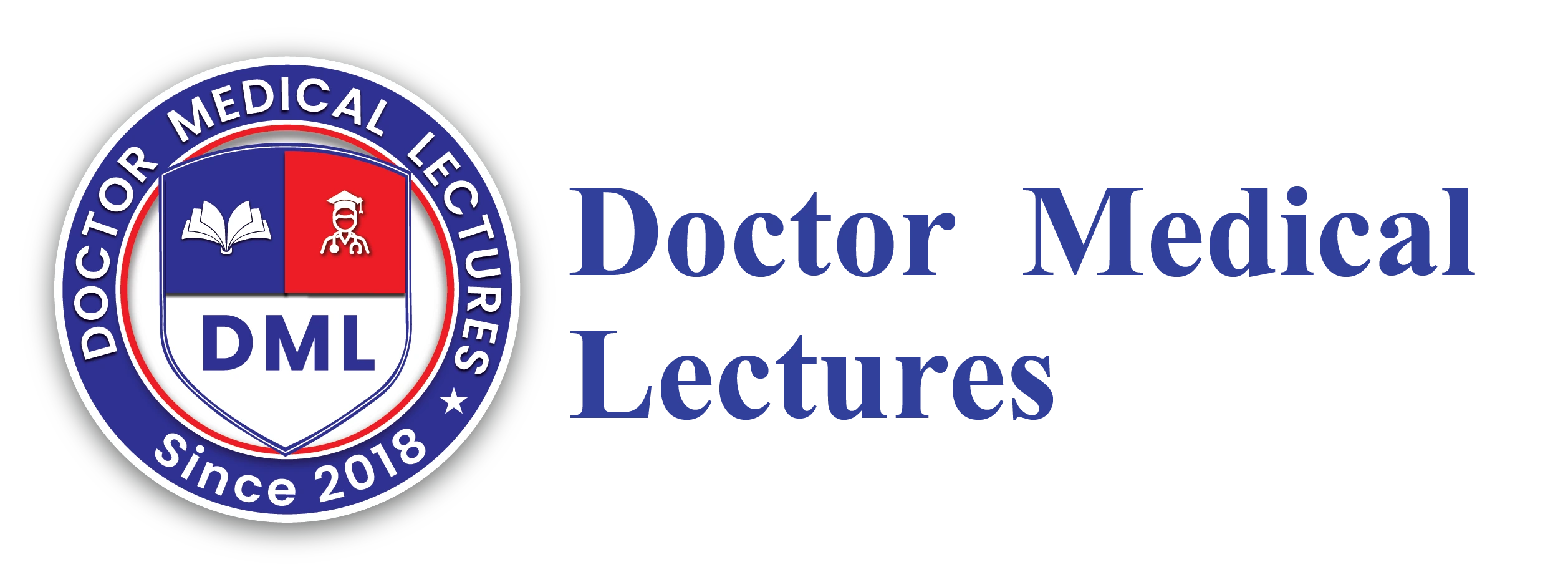Introduction
It is the Fellowship of the College of Physicians and Surgeons (FCPS) is a prestigious postgraduate medical degree granted to members of the College of Physicians and Surgeons in a number of nations, such as Pakistan, India, Bangladesh and Sri Lanka. This award is acknowledged by its strict education and evaluation process that is training doctors to be able to perform specialized clinical practice.

It’s considered to be an important achievement in the career of a doctor offering expertise in multiple areas of surgery and medicine.
FCPS in Pakistan
The country of Pakistan, FCPS is awarded by the College of Physicians and Surgeons Pakistan (CPSP). In 1962, the CPSP is accountable for ensuring the highest standards for postgraduate medical training. FCPS is an extremely desired qualification for doctors seeking to become specialists in a variety of branches of surgery and medicine. The curriculum is designed to make sure that the graduates have the required theoretical understanding as well as practical abilities and the professional skills required by their fields of expertise.
Eligibility Criteria
In order to be eligible to be considered for FCPS the candidates must satisfy these requirements:
- MBBS or equivalent Degree: The candidate must possess the MBBS degree from an accredited medical institution.
- House Job Successful completion of one year house position in a reputable institution of higher education, which covers both surgeries and medicine.
- Register: The candidate must be recognized by the Pakistan Medical and Dental Council (PMDC) or the medical council of their home country.
- Test for Entry: Some specializations may have candidates take an entrance exam prior to beginning FCPS training. Furthermore, they must fulfill the requirements of their institution. institutes of instruction.
Structure of FCPS
FCPS is split into various stages that allow you to learn more and the development of skills:
- FCPS Part 1. The first phase of your FCPS journey. It’s an examination based on MCQs. exam which covers essential medical sciences pertinent to your chosen specialization. The syllabus covers subjects such as anatomy as well as physiology, pathology and the study of pharmacology.
- training (Residency): After successful completion of Part 1, applicants enroll in structured training courses at accredited establishments. Training durations vary from 3 and 5 years according to the field of study. The course includes hands-on training as well as case studies and encounters with various medical ailments under the supervision of a trained expert.
- Intermediate Module (IMM): Some specific areas require that candidates take an intermediate exam prior to progressing into advanced training. The IMM serves as an assessment point, which ensures that students’ performance is aligned with the competencies required.
- FCPS Part 2. The exam tests clinical knowledge as well as practical capabilities. The exam includes both an exam with a written and oral component that is clinical that tests candidates’ capacity to recognize the condition, manage and treat patients efficiently.
- Dissertation/Research Work: Some specialties require submission of a research dissertation or thesis, aimed at enhancing research capabilities and evidence-based practice among candidates.
Specialties Offered in FCPS
FCPS is offered in many medical and surgical fields which includes but is not only:
- Medicine & Allied Fields (General Medicine, Cardiology, Neurology, Gastroenterology, Endocrinology, Pulmonology, Rheumatology, etc.)
- Surgery and Allied Fields (General Surgery Orthopedics, Neurosurgery plastic Surgery, Urology, Cardiothoracic Surgery and so on.)
- Gynecology & Obstetrics
- Pediatrics (Including Pediatric Surgery and Neonatology)
- Anesthesia
- Radiology (Diagnostic Radiology and Interventional Radiology)
- Pathology (Histopathology, Microbiology, Hematology, Chemical Pathology, and Forensic Pathology)
- Ophthalmology
- ENT (Ear, Nose, and Throat)

Importance of FCPS
- Worldwide Recognition: FCPS is recognised in a variety of nations, making it an excellent choice when you want to study overseas, especially those in Middle East, the UK as well as others Commonwealth nations.
- Specialized training: It provides in-depth medical knowledge as well as hands-on education within the field of study and prepares doctors for independent clinical practice.
- Career advancement: FCPS holders are very sought-after by both health care sectors, private and public and often hold leadership positions at hospitals as well as academic institutions.
- More Salary and job security: Doctors who have FCPS certifications often earn higher pay and stability in their jobs. A lot of private and government hospitals choose FCPS-certified doctors in high-level posts.
Challenges of FCPS
- Extreme Exams: The exams are extremely competitive and require extensive study, commitment, and a keen understanding of the clinical environment.
- Longer Training Time: The rigorous training may take a long time to finish, requiring dedication and persistence.
- limited seats: Getting into a education program at a well-known institution isn’t easy because of the limited number of slots available, leading to a selection process that is extremely and competitive.
- Work-Life Balance Because of the hefty job, keeping a balanced between work and life can be a challenge for FCPS new recruits.
Preparation Tips for FCPS
- Solid Basic Knowledge The ability to comprehend the fundamental medical sciences is necessary to pass FCPS Part 1. Continuous revision of topics such as pathology, physiology, as well as the study of pharmacology are essential.
- Regular Study Plan: Consistent study and repetition are essential to succeed. The establishment of a systematic plan of study helps you cover large syllabi effectively.
- Participate in Coaching Centres A lot of candidates profit from guided preparatory classes and academies with advice from experienced instructors.
- Exam Past Papers Practice Answering previous year’s questions may help improve exam performances by helping candidates become acquainted with the exam format and commonly asked subjects.
- Clinical Exposure Experience in the field is essential in FCPS Part 2 preparation. Candidates must actively take part during clinical rotations as well as case discussion as well as patient care.
- research as well as Publications: Engaging in studies and submitting articles will help students gain a better comprehension of the evidence-based medical system, which can be beneficial to requirements in dissertation.
FCPS Vs. Others Postgraduate Medical Qualifications
FCPS is frequently compared to other postgraduate degrees like MRCP (UK), FRCS and MD/MS. There are a few key distinctions:
- FCPS as opposed to. MRCP (UK): MRCP is predominantly exam of theory, but FCPS is a rigorous process of training and tests on the clinical side.
- FCPS vs. MD/MS: MD/MS programs are at the university level, whereas FCPS is overseen by a professional organization (CPSP). Each has its own advantages when it comes to career advancement.
- FCPS and. The USMLE The USMLE exam is mandatory to practice medicine in the USA and FCPS is specifically designed to be used in Pakistan as well as other countries.
Conclusion
FCPS is among the most prestigious and difficult postgraduate medical certifications. The FCPS offers excellent opportunities for career advancement globally and nationally. Even though the path isn’t easy however, the reward is significant to those who through the process. The graduates of FCPS have the skills to manage difficult medical situations and contribute to research and make significant advancements in healthcare within their specific fields of expertise.
Aspiring specialists’ commitment, perseverance and proper instruction are essential to success at FCPS. If you follow the correct strategy and consistently working applicants can rise above the obstacles and be recognized as experts within their field.
Frequently Asked Question
Question 1: What is FCPS?
FCPS (Fellowship from the College of Physicians and Surgeons) is an award of postgraduate medical qualifications through the College of Physicians and Surgeons across several nations, including Pakistan, India, Bangladesh and Sri Lanka. It is acknowledged by its strict assessment and training in various surgical and medical specialties.
Question 2: What is the criteria to be considered for eligibility to be eligible for FCPS?
In order to be eligible to be a candidate for FCPS the candidate must meet the following requirements:
- A M.B.B.S. qualification or equivalent qualification from an accredited medical school.
- Have completed an year-long house work (internship) at an accredited hospital.
- Register for registration with an organization like the Pakistan Medical and Dental Council (PMDC) or the relevant medical regulatory authority within their respective country.
- Successfully passed The part 1 exam to be admitted into a school of instruction.
Question 3: What time does it take to finish FCPS?
The length of time varies based on the specialization, however generally, FCPS training lasts between 3 and 5 years. Certain specialties might require further study or tests prior to the certification.
Question 4: What do you think of the exam form of FCPS?
FCPS is comprised of several stages:
- Part I of FCPS: Written exam that is based on the basic medical sciences.
- Education (Residency): Structured instruction in a hospital that is accredited under the supervision of a medical professional.
- Intermediate Module (IMM): Some particularities require a second exam at the end of a specified time frame of instruction.
- FCPS Part 2. The exam consists of clinical, written and oral examinations to evaluate abilities and practical experience.
- Research/Dissertation: Some specialties require research work or a dissertation submission.
Question 5: What medical areas can FCPS provided?
FCPS can be found in many specialty areas, which include:
- Medicine & Allied Fields (Cardiology, Neurology, Gastroenterology, etc.)
- Surgery & Allied Fields (General Surgery, Neurosurgery, Orthopedics, etc.)
- Gynecology & Obstetrics
- Pediatrics
- Anesthesia
- Radiology
- Pathology
- Ophthalmology
- ENT (Ear, Nose, and Throat)
